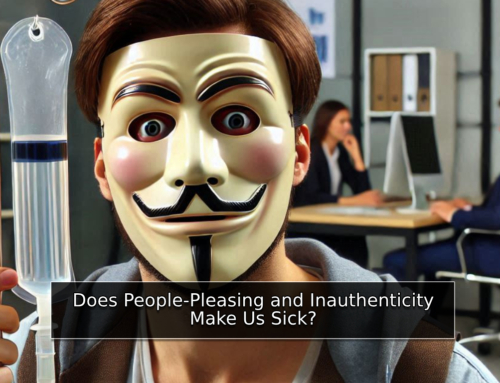Why Do We Blame Others?
Understanding the Deep-Rooted Reasons Behind Blaming Others
We've all been there: something goes wrong, and before we even have a chance to process it, we've already found someone to blame. But why do we tend to blame others? What's behind this urge to shift the blame away from ourselves? In this post, we'll delve deep into this phenomenon and understand its causes, consequences, and ways to address it.
Reasons Behind Blaming Others
The tendency to blame others isn't just about taking the easy way out. Often, it's a deeper defense mechanism designed to protect us from uncomfortable emotions like:
- Fear of failure and shame: Fear of failure and shame are powerful motivators behind this behavior. When we experience failure, we may feel deep shame and fear the negative consequences on our self-image and relationships. Blaming others allows us to avoid confronting these difficult emotions and shift responsibility to someone else.
- Low self-esteem: People with low self-esteem may blame others to protect their fragile self-image. Blaming others allows them to present a more positive image of themselves and avoid confronting feelings of inadequacy.
- Past experiences: Negative past experiences, such as repeated criticism or punishment for mistakes, can create a deep-seated fear of failure. As a result, we may prefer to blame others to avoid negative consequences.
- Negative core beliefs: Negative core beliefs about ourselves, which also stem from early life experiences, such as "I'm not good enough," "I'm not worthy," or "I always fail," immediately evoke pain and anxiety about the consequences. This makes it much easier to avoid taking responsibility and to find someone to blame.
- Imposter syndrome: The belief that one is not as competent as others perceive them to be and the fear of being exposed as a fraud. Imposter syndrome makes us fear that our weaknesses will be revealed, so we tend to blame others to protect our fragile self-image.
Additional Consequences of Blaming Others
- Damaged relationships: Constantly blaming others can harm our relationships with those around us.
- Lack of personal growth: When we avoid taking responsibility for our mistakes, we miss opportunities to learn and grow.
- Low self-esteem: Paradoxically, constantly blaming others can lead to feelings of worthlessness.
The Path to Change
So, what can we do? How can we change this pattern of blaming others?
- Self-awareness: The first step is to identify the situations where we tend to blame others. What are we feeling? What are we thinking?
- Acceptance: Accept that mistakes are part of life. We all make mistakes sometimes, and in these situations, our minds may create difficult thoughts and feelings. This is natural, and it's how our survival mechanisms work. If we can learn to accept the presence of these uncomfortable thoughts and feelings without judgment and without the immediate need to avoid them, we can become masters of ourselves and choose the response that aligns with our true values.
- Focus on solutions: Instead of wasting energy on blame, focus on solving the problem. What can be done to fix the situation?
- Learn from mistakes: See mistakes as opportunities to learn and grow. What have you learned from this experience?
- Effective thinking: Instead of seeking positive thoughts, focus on thoughts that support your goals and well-being. Ask yourself: What are these thoughts doing to me? Are they moving me forward or holding me back?
Cognitive-Behavioral Therapy CBT and ACT
Cognitive-Behavioral Therapy (CBT) and Acceptance and Commitment Therapy (ACT) are effective tools that can help us change our thinking and behavior patterns. These therapies can teach us to identify and challenge negative automatic thoughts, develop healthy coping skills, and learn to take responsibility for our lives.
In conclusion, the tendency to blame others is a common one, but it doesn't serve us in the long run. By understanding the reasons behind this behavior, we can learn how to change it and develop more fulfilling lives. Remember, taking responsibility isn't just a burden; it's an opportunity to grow and evolve.
Contact now
Ready to take the first step towards positive change? Contact me now for more information and to schedule an appointment. Whether you prefer in-person sessions in Tel Aviv or virtual meetings via Zoom, my integrated approach of Cognitive Behavioral Therapy (CBT) and Acceptance and Commitment Therapy (ACT) can help you break free from struggles and find greater fulfillment in life. I'll be sure to get back to you as soon as possible. Let's embark on this transformative journey together!
Call Whatsapp 052-2325511
Or fill out the following form.
Can ACT and CBT assist you or your loved ones?
Welcome to my therapy practice, where I offer a powerful combination of Cognitive Behavioral Therapy (CBT) and Acceptance and Commitment Therapy (ACT) techniques. CBT is a goal-oriented, short-term approach that's highly effective for anxiety, depression, low self-confidence, and more. ACT complements CBT, helping you navigate life's challenges and find fulfillment and authentic, happier life.
If you're struggling with anxiety, depression, low self-image, or facing setbacks, CBT combined with ACT may be the key to transforming your life. Break free from the struggle and take a step towards a happier, more fulfilling life.
Contact me today to schedule an appointment and embark on your journey of positive change. You don't have to face it alone; I'm here to support you every step of the way. Let's work together to create the life you deserve!





